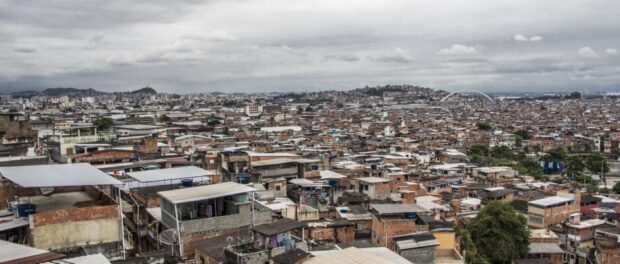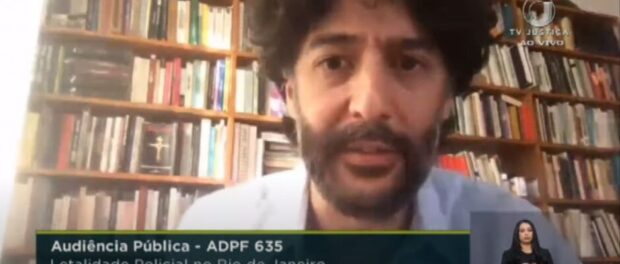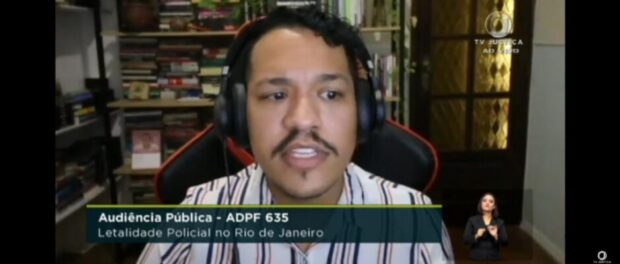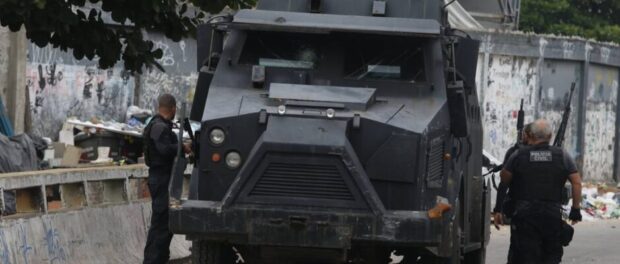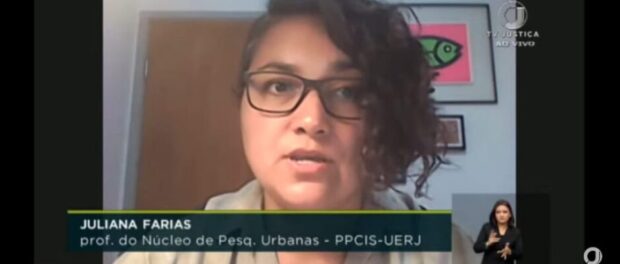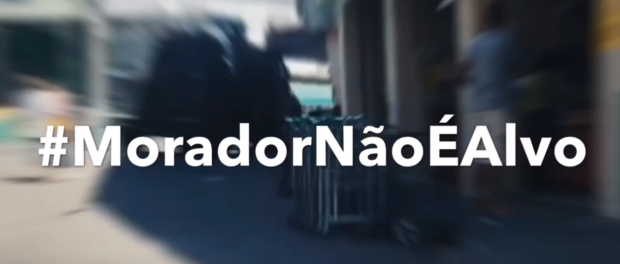
July 6 marks the two-month anniversary of the largest massacre committed by the police in the history of the city of Rio de Janeiro—resulting in 28 deaths in the Jacarezinho favela—despite the decision of the Brazilian Supreme Court (STF)—known as the Claim of Non-Compliance with a Fundamental Precept (ADPF 635)—suspending police operations in favelas during the coronavirus pandemic.
Weeks before the massacre, from April 16-19, a public hearing was held at the STF to discuss the ADPF 635, known as the “ADPF of the Favelas.” In addition to favela grassroots movements, mothers of victims of State violence, and other civil society organizations who acted as amicus curiae (friends of the court), the court heard advocates and experts in urban violence and public security. The hearing’s aim was to collect information supporting the elaboration of a plan to reduce police lethality in Rio de Janeiro, as well as a ban on police raids during the pandemic. The event was held through videoconferencing and broadcast on the YouTube page of TV Justiça.
In all, 66 organizations participated in the hearing, representing community associations, favela grassroots movements, as well as various entities related to human rights and victims of State violence.
Unanimously, professors and researchers from different institutions condemned the war on drugs as a confrontation policy. Their assessment was that police violence in Rio de Janeiro is one of the most serious and persistent public problems; that the security policies adopted so far by the State are part of the problem; and that this public crisis is strongly aggravated by a dehumanizing construct of favelas due to a practice of racism institutionalized by the police and the Public Prosecutor’s Office, that dismisses State violence lawsuits. In 2019 alone, 1,800 people were killed by the police in Rio, of which almost 80% were Afro-Brazilian.
Daniel Sarmento, coordinator of the Fundamental Rights Clinic of the State University of Rio de Janeiro (UERJ), was emphatic in stating to the STF that: “In Rio, there is white skin and target skin. No effort is made to reduce police lethality. Laws are not applicable in favelas; black lives have no value. Structural racism is the vertebra of police violence.”
Daniel Hirata, professor of sociology at the Fluminense Federal University (UFF), said: “The abusive and criminal use of police force threatens the rule of law, and public safety actions based on police raids are part of this problem. These raids are exemplified by the indiscriminate use of force against black and poor people and favela residents, constituting a true genocide.”
Hirata pointed out that “in 99.2% of cases, the Prosecutor’s Office itself dismisses suits brought against police violence. There is a vicious cycle between police violence and corruption. Since October 2020, when Rio’s police began to use the concept of exceptionality as a justification for initiating new operations, we observed an 86% increase in the number of police raids and an almost 200% growth in their lethality. We need external police control.”
According to Pablo Nunes, a researcher at UERJ’s Violence Analysis Laboratory (LAV-UERJ), “police actions are not monitored and do not have their data disclosed.” In his assessment, another problem is that “in addition to planned operations, there are daily armed patrols and violent raids going on. When an unplanned action results in death, police qualifies it as a routine patrol, where their agents were responding in self-defense against their opponents.”
“Police massacres are the demonstration of a new police strategy: multiple deaths prove that they are not accidental and show that Rio’s government is openly violating this Court’s decision,” added Nunes.
Michel Misse, sociology professor at the Federal University of Rio de Janeiro (UFRJ), explained that Rio’s drug trade is set up in gangs of retailers competing with each other, which led to an arms race in the 1980s and 1990s between such gangs. This, in turn, demanded greater police control causing law enforcement to acquire more and more powerful weapons, such as rifles.
In practice, when a gang faction has the oligopoly of drug distribution in one area, drug trafficking violence falls, although retail sales activities go on daily, regularly, and openly in favelas—without violence, and with the knowledge of the State; this has been the case for decades. However, instead of holding an investigation and creating public security policies to reduce the supply of drugs to selling points in favelas, “police raids are set up to suppress these activities with violence, causing many deaths, among both residents and police.”
“It’s like a private war between the police and drug dealers. There is no parallel in any other Brazilian or world city,” Misse posited. For him, these violent State actions “have no relevant results that justify them,” also pointing out that, “numerous studies have already shown their uselessness and danger.” Not carrying out onsite forensic investigations and having the police’s testimony as the only remaining evidence in most cases of police violence, serve to maintain these practices, ensuring the lack of accountability for crimes committed by the police in favelas.
Misse also pointed out that “raids generate more violence and criminal offenses than if they did not take place. Researchers note a strange correlation between police raids against criminal factions in one area and the area’s subsequent occupation by militias,” as Rio’s off-duty police mafias are known. For him, this evidence needs to be seriously investigated as it may “point to a possible intentional use of raids for the purpose of expanding the illegal militia market.” He concludes: “The police’s failure to fully comply with ADPF 635’s precautionary measures is due to Rio’s exceptional character. But what is most exceptional in Rio is not the existence of drug dealers, but the police raids themselves and how they are conducted.”
Juliana Farias, from UERJ’s Urban Research Laboratory (PPCIS-UERJ), pointed out that police lethality is not just a matter of public security. “Rio disobeys legal sentences because it believes otherwise. Techniques are elaborated to continue allowing for the violation of life.”
Maurício Stegemann Dieter, from the University of São Paulo Law School’s Center for Research and Studies in the Criminal Sciences explained that there is a cover-up as far as deaths. “The Public Prosecutor’s Office is in functional remission. The self-defense justification is illegally utilized, whenever the biography of those involved (drug dealers) is described as a motive for the murder.”
Alexandra Montgomery, from Amnesty International Brazil, said racism kills poor and black people. “Rights violations, extrajudicial executions, torture and sexual violence are a part of this population’s daily life. It is essential that the police do not investigate their peers (as then there) is a guarantee of impunity. Only 2% of investigations into these crimes become criminal complaints. This is a stimulus for police violence. The police must be impartial in order to preserve human rights. We need a plan to reduce police lethality.”

